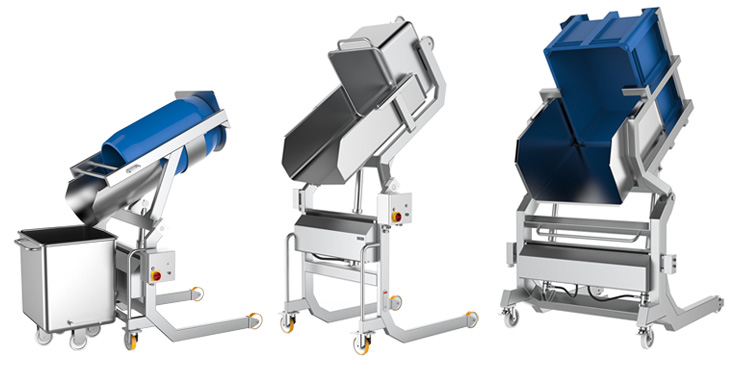
Health and safety issues on the production line can cause major damage to your bottom line. Not only do work injuries create unnecessary paperwork and human resource problems, they also impact the productivity of your processing plant and could leave you vulnerable to legal disputes. That’s why mechanical handling equipment is so essential. However, in the same way as there are manual handling hazards, there are also mechanical handling hazards. Read on to learn what they are and how to avoid them.
Overview:
- What is a manual handling risk?
- Percentage of workplace injuries caused by manual handling
- Mechanical handling hazards
- Avoiding mechanical handling hazards
What is a manual handling risk?
A manual handling risk refers to the prospect of injury due to any sort of manual handling of materials, most commonly lifting or moving. You can also think of manual handling risks as being associated with “push, pull, carry” actions.
To avoid manual handling risks, processors use mechanical handling equipment or material handling equipment. Example pieces of equipment include conveyors, lifting devices, turntables etc.
Learn more: Mechanical handling equipment examples
What percentage of workplace injuries are caused by manual handling?
According to Safe Work Australia’s Workers Compensation Report for 2015-16, 90% of all serious claims are related to injury and musculoskeletal disorders, while only 10% are related to diseases. Of the 90% of non-disease related claims, 45% were manual handling injuries.
In fact, it is estimated that manual handling injuries cost the Australian economy $28 billion every single year.
Top 3 mechanical handling hazards for food processors
While mechanical handling equipment enables us to avoid manual handling injuries, there are still hazards associated with mechanical handling that need to be considered.
1. The mechanical handling equipment itself
The machines themselves can in fact be a hazard. Consider the possible injuries caused by trapping or catching body parts in the equipment, as well as collisions that can occur between workers and the equipment. As part of this, organisations have a responsibility to ensure that proper machine guarding and Personal Protective Equipment (PPE) is in use.
2. The equipment’s load
Mechanical handling equipment can become hazardous if it is bearing a load that is unsuitable or unsafe. This might include unstable loads due to poor packing or stacking, as well as hazardous materials being transported.
3. Human error & improper training
If workers aren’t properly trained in the use of the equipment, this poses a very real hazard. Common training errors include:
- Loading the machine and equipment above its safe working load/capacity
- Not using the proper equipment for the size and shape of the material being moved
- Operating the equipment in areas it’s not designed for
- Failing to take precautions when stacking materials
- Using the equipment for another purpose other than its intended
Avoiding mechanical handling hazards
Most mechanical handling hazards can be avoided by taking the following steps:
- Planning: Take the time to evaluate the space that will house the equipment and how the workflow will move in and around that space. Other control measures include maintaining walking/working surfaces to prevent slips, trips, and falls, machine guarding, and ergonomics programs.
- Load calculation: In order to make the most efficient use of your mechanical handling equipment, we advise you to consider current and ideal through-put.
- Training: To reduce the risk of human error, it’s essential to provide training to operators and other members of staff working in the vicinity of the equipment.. FPE provides comprehensive on-site training with any machinery we supply.
- Regular maintenance: Mechanical handling equipment is only as good as its last service. It’s of paramount importance, both to your bottom line and the safety of your employees, that you schedule regular maintenance of your machines and even invest in spare parts supply.
Learn more: Important of spare parts in the food processing industry
The FPE team is here to help
At FPE, we are proud suppliers of SYSPAL mechanical and bulk material handling equipment in Australia and New Zealand. Contact us today to find out more about the mechanical handling solutions and comprehensive customer support we provide.





